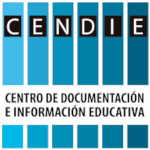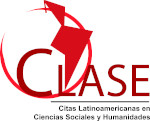Learning to communicate with simulation: satisfaction, confidence, and self-perception of students in High-school level Vocational Education in Nursing
DOI:
https://doi.org/10.26849/bts.v46i2.808Keywords:
Nursing Education, Learning, Health Communication, SimulationAbstract
This study aims to verify whether clinical simulation contributes to the educational background of nursing technicians regarding their skills in communicating with patients and their families. Students were divided into two groups and assessed by instruments on communication skills and satisfaction with learning. Then, they were interviewed while performing their first clinical internships. Although they seemed satisfied, data from the scale and interview showed little preparation to communicate. Thus, in conclusion, simulation as an isolated activity has only indirect effects on communication learning.
Downloads
References
ALMEIDA, Rodrigo Guimarães dos Santos et al. Validation to Portuguese of the Scale of Student Satisfaction and Self-Confidence in Learning. Revista Latino-Americana de Enfermagem, Ribeirão Preto, v. 23, n. 6, p. 1007-1013, Nov./Dec. 2015. DOI: 10.1590/0104-1169.0472.2643. Disponível em: https://www.scielo.br/scielo.phpscript=sci_arttext&pid=S0104-11692015000601007. Acesso em: 29 mar. 2019.
ANDERSON, Judy K.; NELSON, Kimberly. Patterns of communication in high-fidelity simulation. Journal of Nursing Education. Thorofarev. v. 54, n. 1, p. 22-27, 2015. DOI: 10.3928/01484834-20141228-01. Disponível em: https://pubmed.ncbi.nlm.nih.gov/25545143/. Acesso em: 29 mar. 2019.
AZEVEDO, Albert Lengruber de et al. Nursing students’ sense perception of communication in psychiatric hospital. Revista Brasileira de Enfermagem, Brasília, DF, v. 71, p. 2280-2286, 2018. Supl. 5. DOI: 10.1590/0034-7167-2017-0957. Disponível em: https://www.scielo.br/scielo.php?script=sci_arttext&pid=S0034-71672018001102280. Acesso em: 20 mar. 2019.
BARDIN, Laurence. Análise de conteúdo. São Paulo: Ed. 70, 2011.
BIANCHESSI, Cleber; MENDES, Ademir Pinhelli. Ensino de história por meio de jogos digitais: relato de aprendizagem significativa com games. Revista Tempos e Espaços em Educação, São Cristóvão, v. 12, n. 29, p. 145-160, 2019. DOI: 10.20952/revtee.v12i29.9660. Disponível em: https://seer.ufs.br/index.php/revtee/article/view/9660. Acesso em: 14 ago. 2019.
BRASIL. Lei n. 7.498, de 25 de junho de 1986. Dispõe sobre a regulamentação do exercício da Enfermagem e dá outras providências. Brasília, DF: Presidência da República, Casa Civil, 1986. Disponível em: http://www.planalto.gov.br/ccivil_03/LEIS/L7498.htm. Acesso em: 30 abr. 2019.
CAMPBELL, Suzanne Hetzel et al. Development of the health communication assessment tool: enhancing relationships, empowerment, and power-sharing skills. Clinical Simulation in Nursing, Oxford, v. 9, n. 11, p. 543-550, May 2013. DOI: 10.1016/j.ecns.2013.04.016. Disponível em: https://www.nursingsimulation.org/article/S1876-1399(13)00087-X/fulltext. Acesso em: 26 set. 2017.
CARDOSO, Maria Lúcia de Macedo et al. The national policy of permanent health education in public health schools: reflections from practice. Revista Ciência & Saúde Coletiva, Rio de Janeiro, v. 22, n. 5, p. 1489-1500, 2017. DOI: 10.1590/1413-81232017225.33222016. Disponível em: https://www.scielo.br/scielo.php?pid=S1413-CARDOSO, Maria Lúcia de Macedo et al. The national policy of permanent health education in public health schools: reflections from practice. Revista Ciência & Saúde Coletiva, Rio de Janeiro, v. 22, n. 5, p. 1489-1500, 2017. DOI: 10.1590/1413-81232017225.33222016. Disponível em: https://www.scielo.br/scielo.php?pid=S1413-81232017002501489&script=sci_arttext&tlng=en. Acesso em: 20 nov. 2018.
CHAPELAIN, Pascal; MORINEAU, Thierry; GAUTIER, Claudie. Effects of communication on the performance of nursing students during the simulation of an emergency situation. Journal of Advanced Nursing. Cottingham, v. 71, n. 11, p. 2457-2697, 2015. DOI: /10.1111/jan.12733. Disponível em: https://onlinelibrary.wiley.com/doi/10.1111/jan.12733. Acesso em: 15 abr. 2019.
COGO, Ana Luísa Petersen et al. Construção e desenvolvimento de cenários de simulação realística sobre a administração segura de medicamentos. Revista Gaúcha de Enfermagem, Porto Alegre, v. 40, n. especial, 2019. DOI: 10.1590/1983-1447.2019.20180175. Disponível em: https://www.scielo.br/scielo.php?script=sci_arttext&pid=S1983-14472019000200801. Acesso em: 20 mar. 2019.
CORIOLANO-MARINUS, Maria Wanderleya de Lavor et al. Comunicação nas práticas em saúde: revisão integrativa da literatura. Saúde e Sociedade, São Paulo, v. 23, n. 4, p. 1356-1369, out./dez. 2014. DOI: 10.1590/S0104-12902014000400019. Disponível em: https://www.scielo.br/scielo.php?script=sci_arttext&pid=S0104-12902014000401356&lng=en&nrm=iso&tlng=pt. Acesso em: 26 set. 2017.
CORRÊA, Adriana Katia; SORDI, Mara Regina Lemes de. Educação Profissional Técnica de nível médio no Sistema Único de Saúde e a política de formação de professores. Texto & Contexto Enfermagem, Florianópolis, v. 27 n. 1 p. 1-8, mar. 2018. DOI: 10.1590/0104-07072018002100016. Disponível em: https://www.scielo.br/scielo.php?script=sci_arttext&pid=S0104-07072018000100600. Acesso em: 20 mar. 2019.
EXPÓSITO, Judit Sánchez et al. Ensuring relational competency in critical care: importance of nursing students’ communication skills. Intensive and Critical Care Nursing, [s. l.], v. 44, p. 85-91, Feb. 2018. DOI: 10.1016/j.iccn.2017.08.010. Disponível em: https://www.sciencedirect.com/science/article/abs/pii/S0964339717301374?via%3Dihub. Acesso em: 15 abr. 2019.
FUNDAÇÃO OSWALDO CRUZ. Pesquisa inédita traça perfil da enfermagem no Brasil. In: Agência Fiocruz de Notícias. Rio de Janeiro, 07 maio 2015. Disponível em: https://portal.fiocruz.br/noticia/pesquisa-inedita-traca-perfil-daenfermagemno-brasil. Acesso em: 13 jan. 2020.
GROPELLI, Theresa; SHANTY, Joyce A. Nursing students’ perceptions of safety and communication issues in the clinical setting. Journal of Nursing Education, [s. l.], v. 57, n. 5, p. 287-290, 2018. DOI: 10.3928/01484834-20180420-06. Disponível em: https://www.healio.com/nursing/journals/jne/2018-5-57-5/%7Bcee907e4-3467-40a0-9ece-581f060305c4%7D/nursing-students-perceptions-of-safety-andcommunication-issues-in-the-clinical-setting#divReadThis. Acesso em: 15 abr. 2019.
GUIMOND, Mary Elizabeth; FOREMAN, Stephen E.; WERB, Mike. Evaluation of an unfolding obstetric experience simulation in an undergraduate nursing program. Nurse Education Today, Edinburgh, n. 79, p. 124-128, 2019. DOI: 10.1016/j.nedt.2019.05.003. Disponível em: https://www.sciencedirect.com/science/article/abs/pii/S0260691719300589. Acesso em: 13 fev. 2020.
HAYDEN, Jennifer K. et al. The NCSBN national simulation study: a longitudinal, randomized, controlled study replacing clinical hours with simulation in prelicensure nursing education. Journal of Nursing Regulation, Chicago, v. 5, n. 2, p. s3-s40, 2014. Disponível em: https://www.journalofnursingregulation.com/article/S2155-8256(15)30062-4/pdf. Acesso em: 13 fev. 2020.
HEISE, Barbara A.; GILPIN, Laura C. Nursing students’ clinical experience with death. Nursing Education Perspectives, Philadelphia, v. 37, n. 2, p. 104-106. DOI: 10.5480/13-1283. Disponível em: https://journals.lww.com/neponline/Abstract/2016/03000/Nursing_Students__Clinical_Experience_With_Death_.10.aspx. Acesso em: 13 fev. 2020.
JEFFRIES, Pamela R.; RIZZOLO, Mary Anne. Designing and implementing models for the innovative use of simulation to teach nursing care of adults and children: a national, multi-site, multi-method study. National League for Nursing, New York, 2006.
KARLSEN, Marte-Marie Wallander; ØLNES, Mia Alexandra; HEYN, Lena Güntenberg. Communication with patients in intensive care units: a scoping review. Nursing in Critical Care, London, v. 24, n. 3, Aug. 2018. DOI: 10.1111/nicc.12377. Disponível em: https://onlinelibrary.wiley.com/doi/full/10.1111/nicc.12377#accessDenialLayout. Acesso em: 15 abr. 2019.
KENNY, Gerard et al. Improving and validating children’s nurses communication skills with standardized patients in end of life care. Journal of Child Health Care, London, v. 20, n. 2, p.145-52, Nov. 2016. DOI: 10.1177/1367493514555588. Disponível em: https://journals.sagepub.com/doi/10.1177/1367493514555588?url_ver=Z39.88-2003&rfr_id=ori%3Arid%3Acrossref.org&rfr_dat=cr_pub++0pubmed&. Acesso em: 26 set. 2017.
LARTI, Negin; ASHOURI, Elaheh; AARABI, Akram. The effects of an empathy role-playing program for operating room nursing students in Iran. Journal of Educational Evaluation for Health Professions, [s. l.] v. 15, n. 29, Dec. 2019. DOI: 10.3352/jeehp.2018.15.29. Disponível em: http://edcbmj.ir/browse.php?a_id=1702&sid=1&slc_lang=en&ftxt=0. Acesso em: 13 fev. 2020.
LI, Yuan et al. Effectiveness of problem-based learning on the professional communication competencies of nursing students and nurses: a systematic review. Nurse Education in Practice, Edinburgh, v. 37, p. 45-55, May 2019. DOI: 10.1016/j.nepr.2019.04.015. Disponível em: https://www.sciencedirect.com/science/article/abs/pii/S1471595318304918?via%3Dihub. Acesso em: 13 fev. 2020.
MAKUCH, Débora Maria Vargas; ZAGONEL, Ivete Palmira Sanson. Pedagogical approach in the implementation of curricular programs in nurse training. Escola Anna Nery Revista de Enfermagem, Rio de Janeiro, v. 21, n. 4, p. 1-9, ago. 2017. DOI: 10.1590/2177-9465-ean-2017-0025. Disponível em: https://www.scielo.br/scielo.phpscript=sci_arttext&pid=S1414-81452017000400215. Acesso em: 22 abr. 2019.
MOEN, Ellen; NÅDEN, Dagfinn. Intensive care patients’ perceptions of how their dignity is maintained: a phenomenological study. Intensive and Critical Care Nursing, Edinburgh, v. 31, n. 5, p. 285-93, 2015. DOI: 10.1016/j.iccn.2015.03.003. Disponível em: https://www.sciencedirect.com/science/article/abs/pii/S0964339715000221?via%3Dihub. Acesso em: 22 abr. 2019.
MULVOGUE, Jennifer; RYAN, Collen; CESARE, Paloma. Nurse simulation facilitator experiences learning open dialogue techniques to encourage self-reflection in debriefing. Nurse Education Today, Edinburgh, v. 79, p. 142-146, Aug. 2019. DOI: 10.1016/j.nedt.2019.05.021. Disponível em: https://www.sciencedirect.com/science/article/abs/pii/S0260691718310177. Acesso em: 13 fev. 2020.
NATIONAL LEAGUE FOR NURSING. National League for Nursing research grants program advances the science of nursing education. Washington, DC, 18 Jan. 2008. Disponível em: http://www.nln.org/newsroom/news-releases/news-release/2008/01/18/national-league-for-nursing-research-grants-programadvances-the-science-of-nursing-education-201. Acesso em: 13 nov. 2019.
O’SHEA, Eileen R et al. A descriptive analysis of nursing student communication behaviors. Clinical Simulation in Nursing, New York, v. 9 n. 1, p. 5-12, Jan. 2013. DOI: /10.1016/j.ecns.2011.05.013. Disponível em: https://www.sciencedirect.com/science/article/abs/pii/S1876139911001009. Acesso em: 12 mai. 2019.
OLIVEIRA, Saionara Nunes et al. Da teoria à prática, operacionalizando a simulação clínica no ensino de Enfermagem. Revista Brasileira de Enfermagem, Brasília, DF, v. 71, n. 4, p. 1791-1798, 2018. DOI: 10.1590/0034-7167-2017-0180. Disponível em: https://www.scielo.br/pdf/reben/v71s4/pt_0034-7167-reben-71-s4-1791.pdf. Acesso em: 4 mar. 2019.
PENA, Mileide Morais; MELLEIRO, Marta Maria. Eventos adversos decorrentes de falhas de comunicação: reflexões sobre um modelo para transição do cuidado. Revista de Enfermagem da UFSM, Santa Maria, v. 8, n. 3, p. 616-625, jul./set. 2018. DOI: 10.5902/2179769225432. Disponível em: https://periodicos.ufsm.br/reufsm/article/view/25432/pdf. Acesso em: 4 mar. 2019.
ROBSON, Wayne. Eliminating avoidable harm: time for patient safety to play a bigger part in professional education and practice. Nurse Education Today, Edinburgh, v. 34, n. 5, p. e1-2, 2014. DOI: 10.1016/j.nedt.2012.06.002. Disponível em: https://www.sciencedirect.com/science/article/abs/pii/S0260691712001918?via%3Dihub. Acesso em: 2 jan. 2018.
SANTOS, José Luís Guedes dos et al. Interpersonal communication competence among nursing students. Revista Latino-americana de Enfermagem, Ribeirão Preto, v. 27, p. e3207, out. 2019. DOI: 10.1590/1518-8345.3226.3207. Disponível em: https://www.scielo.br/scielo.php?script=sci_arttext&pid=S0104-11692019000100387&lang=pt. Acesso em: 13 fev., 2020.
SCALABRINI NETO, Augusto; FONSECA, Ariadne; BRANDÃO, Carolina Felipe Soares. Simulação realística e habilidades na saúde. Rio de Janeiro: Atheneu, 2017.
SLADE, Diana et al. Benefits of health care communication training for nurses conducting bedside handovers: an Australian hospital case study. The Journal of Continuing Education in Nursing, New Jersey v. 49, n. 7, p. 329-336, 2018. DOI: 10.3928/00220124-20180613-09. Disponível em: https://www.healio.com/nursing/journals/jcen/2018-7-49-7/%7B83dc30ad-1137-4ee1-b474-cbedb187f227%7D/benefits-of-health-care-communication-training-for-nurses-conducting-bedsidehandovers-an-australian-hospital-case-study. Acesso em: 13 fev. 2020.
SMITH, Madison et al. The use of simulation to teach nursing students and clinicians palliative care and end-of-life communication: a systematic review. The American Journal of Hospice & Palliative Care, Weston, v. 35, n. 8, p. 1140-1154, 2018. DOI: 10.1177/104990911876138. Disponível em: https://www.ncbi.nlm.nih.gov/pmc/articles/PMC6039868/. Acesso em: 13 fev. 2020.
SOUSA, Mapoanney Nhalis Clares de et al. Conhecimento de discentes sobre metodologia ativa na construção do processo de ensino aprendizagem inovador. Revista Interdisciplinar Encontro das Ciências, Icó, v. 1, n.1, p. 61-74, 2018. DOI: 10.1000/riec.v1i1. Disponível em: http://riec.fvs.edu.br/index.php/riec/article/download/7/5. Acesso em: 13 fev. 2020.
Downloads
Published
How to Cite
Issue
Section
License
Commitment to the Provision of Creative Commons Licensing
The Senac Journal of Education and Work is per the BY NC license, free of charge and with no commercial purpose.
In submitting their work for evaluation, the authors undertake to make their work available through the Creative Commons-BY NC license at the website <https://br.creativecommons.org>, thus dispensing with the need for signing any other document or contract with Senac to regulate the availability of their works in the Senac Journal of Education and Work.
The author (s) further declare that they recognize the Senac Journal of Education and Work as an open access journal, whose Policies and Authors Guidelines are available to know on its official website, namely - www.bts .senac.br - and that they can be modified at any time, and immediately any new condition published online.
The names and addresses informed in this journal will be used exclusively for the services provided by this publication and are not available for other purposes or to third parties.




















